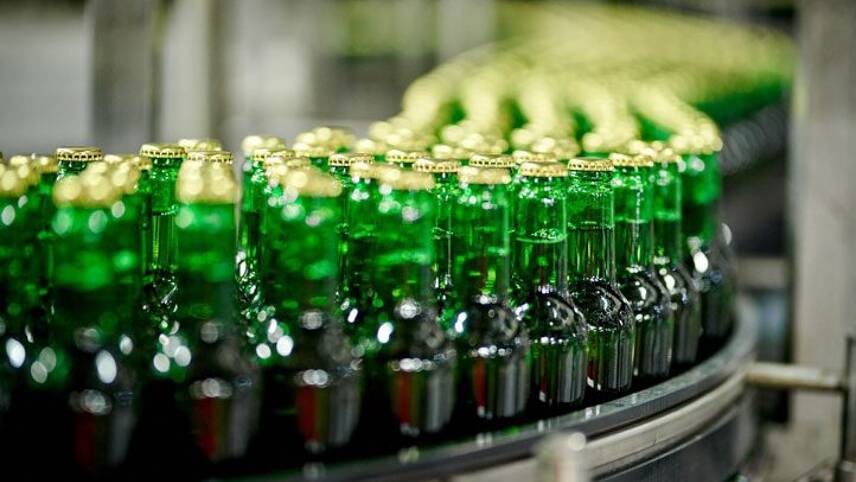Register for free and continue reading
Join our growing army of changemakers and get unlimited access to our premium content

The recommendations span across all operations including supply-chain, raw materials, packaging, transportation, and consumption
The report found that the industry’s emissions in 2021 accounted for 1.5 billion tons of CO2e (3.8% of global emissions).
Despite a 6% reduction in CO2e per liter from 2018 to 2021, the industry’s current pace of 0.7% per year falls short of long-term requirements to decarbonise. The report suggests that an 11-fold improvement in reduction rates is necessary to achieve net-zero goals.
Kearney’s European food & beverage sector lead Adrian Kirste said: “While this report is a timely reminder of the need for action, it is reassuring to see that achieving net-zero goals remains well within the beverage industry’s reach.
“The complexity of achieving net-zero for the beverage sector will require us to change practices along the whole value chain, from product development to portfolio management to packaging design and beyond.”
Implementing a variety of proposed measures could lead the industry to net-zero by between 2039 and 2045 based on the level of ambition shown, according to the report.
The recommendations span across all operations including supply-chain, raw materials, packaging, transportation, and consumption.
Supply-chain
The report urges beverage companies to actively enable and support their value chain partners in adopting sustainable practices by sharing expertise and experience on implementing decarbonising technologies, energy-efficient processes, and waste reduction strategies.
It further suggests the companies to collaborate with suppliers to explore joint investment opportunities in renewable energy infrastructure, such as solar panels or wind turbines.
Raw materials
Raw materials contribute to 35% of all the beverage industry’s greenhouse gas (GHG) emissions.
The report suggests reducing emissions linked to raw materials by enhancing crop traits, altering cultivation practices, and promoting soil health.
It highlights that creating pest-resistant crops can lower pesticide use, precision irrigation can save water, and extending product lifespan with coatings reduces waste during transport to beverage makers, leading to reduced operational waste, improved efficiency, and a smaller carbon footprint.
Packaging practices
After raw materials, packaging materials have the most emissions reduction potential, forming 23% of the beverage sector’s GHG emissions.
As water makes up a large portion of many beverage products, the report proposes delivering products as powder, concentrated cubes, or syrup to stores and consumers.
The report also recommends shifting towards reusable packaging such as refillable aluminium bottles and returnable options. Furthermore, it suggests employing durable PET or glass packaging, allowing consumers to refill multiple times at the point of sale.
Operations
As per the report, potential emission reduction options fall into three categories: efficiency enhancement, electrification using renewable energy, and adopting greener or lower-emission alternatives like hydrogen or natural gas.
The report suggests exploring green assets when electrification is costly or limited by technology. It also proposes combining lower-emission alternatives, like natural gas, with carbon capture mechanisms on exhaust to create commercial opportunities, similar to the cement industry’s CO2 utilisation.
Transportation
The report proposes increasing vehicle transportation efficiency by raising average volume, optimising routes, and reducing fleet GHG intensity using AI tools, analytics, and larger-capacity vehicles.
Lowering emissions can result from local sourcing and route optimisation, aided by new infrastructure like distribution centres. Shifting to greener transport modes like rail or water is advised where possible, alongside replacing combustion engines with lower-emission or electric alternatives.
Consumption
The report underscores that beverage industry consumption habits are impacted by in-store coolers.
Newer coolers, using CO2 and propane, have emission factors over 1,000 times lower than older ones with high-emission refrigerants.
The report recommends ensuring proper disposal of old refrigerants to prevent releases, necessitating correct removal, storage, and handling processes.
Lastly, the report urges beverage companies to adopt carbon compensation schemes and direct air capture methods to mitigate unavoidable GHG emissions.


Please login or Register to leave a comment.